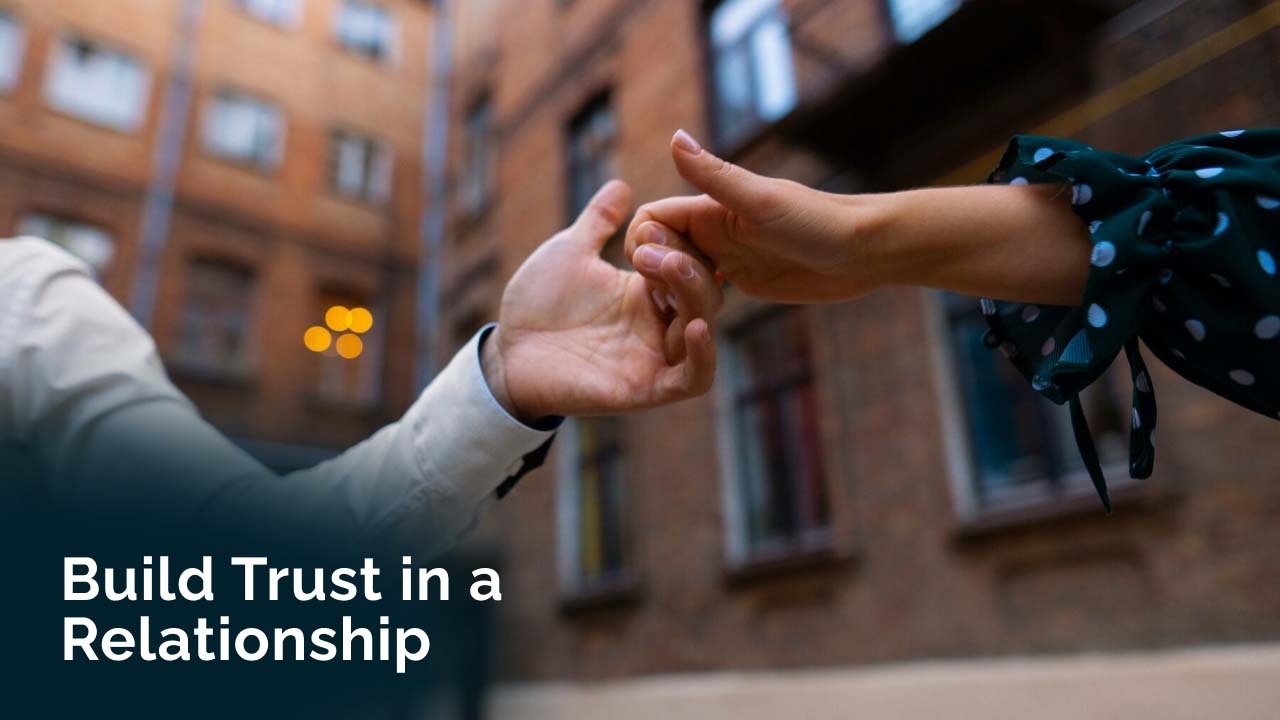
If you’ve gotten to a point where you or your partner start feeling insecure in a relationship, you’re in the right place.
Do you blame yourself whenever there’s a fight in your relationship? Do you quickly get sad when your partner scolds you? Do you stay quiet or make scenes? Do you want to know how to deal with insecurities in a relationship?
Learning how to stop being insecure in a relationship is an important part of being in a healthy relationship, yet many people don’t know how to deal with it. Insecurities are a natural part of relationships, but what happens when the insecurity starts sabotaging your relationship?
This article has covered 13 expert-approved tips on how to stop being insecure in a relationship. Keep reading, and you’ll discover your relationship gets stronger and happier.
Why Do We Feel Insecure in a Relationship?
Feeling insecure is something that we all experience – regardless of age, gender, or stage in life. Even the most perfect couples you see on Instagram feel insecure about their relationship.
Relationship insecurities are extremely common for women. In fact, a survey by the National Survey of Women found that about 82% of surveyed women felt insecure about their partner’s love.
You’re concerned that your partner might not find you attractive or capable enough, or they don’t find you good in bed, or that they’re going to leave you someday. These beliefs and thoughts can make you question your worth and the security of the relationship.
In many cases, insecurity in a relationship comes from our own issues and self-esteem.
We are desperate for validation and attention, regularly worrying about not being perfect or good enough for our partner.
But here’s the catch. Feeling insecure is about habits, not your personality. You need to work on yourself rather than think about what your partner or people think of you.
Taking ownership of other people’s dysfunction will never be what insecurity is about.
Even though reasons for insecurity can be different for everyone, it often manifests as jealousy, argument, fear of abandonment, and lack of trust. Whatever the reason, it’s important to deal with it in a healthy way in order to keep your relationship alive.
13 Tips on How to Stop Being Insecure in a Relationship
Relationship insecurities must be addressed since they can lead to unhealthy behaviors such as possessiveness or self-sabotage. Here are some useful strategies and tips on how to deal with insecurities in a relationship:
Tip #1: Pinpoint the root cause of your insecurities.
The first and most important thing you need to do is to figure out why you are insecure. It can help you understand yourself and your emotions on an intense level.
What’s the thing that is making you so insecure? Is it related to your body or self-esteem? Lack of trust? Feeling betrayed? Fear of abandonment? Or Social anxiety?
Take time to understand it. If you sense you have unresolved trauma, give yourself time to heal or seek help from a therapist. When you understand the underlying issue, it will be easier for you to take action and cope with your deep-seated insecurity.
Tip #2: Communicate openly with your partner.
Communication is key when it comes to a healthy and lasting relationship.
Talk about your insecurities with your partner once you identify them. Do you feel they come late from the office and don’t spend enough time with you? Do you get upset when they make plans but cancel them at the last minute?
Whatever it is, make it a point to tell your partner and have a frank discussion.
But if your partner is avoiding making the talk, then it might be a huge red flag, and you may need to clear it out as soon as possible.
Tip #3: Accept yourself and your partner.
If you are insecure with yourself, you will always be insecure in your relationships.
Read that again. When you have control over your emotional triggers, you feel confident; because of this, you have security within. Your self-esteem will be firm because of your unconditional self-love.
Insecurities come from being overly critical of yourself. Take this as a reminder to accept yourself as you are. Everyone is unique in their own way, and you don’t have to fit into every shape the world expects you to fit into.
So, learn to appreciate your uniqueness and celebrate your strengths. Likewise, accept your partner with an open heart. That said, stop comparing yourself and your relationship with others and accept it as it is.
Tip #4: Stop overthinking.
Overthinking is the worst enemy in everyone’s lives. Not to mention, It can even strain you and your relationship. So, don’t let yourself overthink every negative thought you may have.
Because when you do this, you will forget your self-worth and how powerful you are. Don’t give these negative emotions any strength, as it will only tear your energy out and intensify your insecurities.
Next time you catch yourself overthinking, focus on why you’re overthinking. Do you think your partner is cheating? Do you have trust issues? Or are you just making creepy scenes in your mind?
No matter what, don’t keep it to yourself. Share your thoughts with your partner and talk it out! You can also try journaling your thoughts and feelings in your free time. It can be really helpful for recognizing and solving negative and recurring beliefs about your relationship.
Tip #5: Focus on the present.
Holding on to your negative past memories can weigh you down and prevent you from living fully in the present. Yes, it’s not easy to forget the past burdens and indignities.
But with little time and effort, you can learn to eventually let go of your grudges and free your time and energy for more mindful living in the present.
Try doing the below activities to be mindful of your own thoughts:
- Meditate every day.
- Practice mindfulness by doing yoga and breathing exercises.
- Jot down your blessings in a diary.
- Notice your surroundings and feel (Be careful not to dwell on the past or negative thoughts).
- Distract yourself by working on your hobbies and interests.
Tip #6: Practice self-compassion.
Compassion is nothing but treating yourself with the same care and love that you would give to your family, partner, and friends. It involves being patient as you grow and learn.
Being self-compassionate can actually lead to a happier and more productive life.
Start by eating well, wearing nice and comfortable dresses, prioritizing your hygiene, and getting a minimum of 7 hours of sleep. Set realistic goals and make plans accordingly so you feel great about yourself. Do things that make you happy and remind yourself that you’re worthy of love.
Take things one step at a time and be kind to yourself. And you’ll gradually notice your self-esteem has developed and insecurities are fading away.
Tip #7: Avoid unnecessary comparisons.
Social media has made our lives hell! Constantly being glued to Instagram and TikTok has gotten most of us into an endless loop of comparing ourselves and our relationships with others.
This is another factor that leads to insecurity, and the only way to drop them is to stop comparing your relationship. As we discussed before, every relationship is unique. So, instead of comparing, learn to count your life’s blessings.
Think of the time your partner planned a birthday/anniversary surprise or cooked your favorite meal when you were sick. Be grateful for how caring and lovely they were. Being optimistic is key to being happy with whatever you have.
Tip #8: Develop self-confidence and self-esteem.
Low self-esteem is the number one reason for relationship insecurities. In fact, a recent study by SpringerLink proved that low self-esteem is positively associated with insecurity and relationship dissatisfaction.
True confidence is something that can only come from within. It stems from taking care of yourself and the acts of love you show.
When you’re confident in yourself and your relationships, you’re happier in who you are and more fulfilled in your relationship, and the more you’re able to show your worth to your partner. Some of the ways to boost your confidence are learning new things, setting realistic goals, etc.
Tip #9: Accept that insecurities are part of being human.
This may sound illogical but take note of it. Insecurities are normal!
You may think you are the only one experiencing such negative things, but the truth is that insecurity is a common human experience. We all have our flaws. Accepting them while thoughtfully working on growing out of them is a wonderful gesture of self-love.
Everyone, at some point in their lives, struggles with feelings of insecurities, be it related to work, relationships, or self.
Tip #10: Stop asking for assurance.
This is the best way to deal with your insecurities. The problem here is that you are training yourself to depend on your partner to feel good. Every time you ask for reassurance, it’s a vote of no confidence in yourself.
Feeling insecure and then asking for reassurance is an endless loop that leads to more insecurity on your part and more resentment on your partner.
Of course, there’s nothing wrong with asking your partner for help, but relying on them to be your emotional support is definitely not a good idea.
Tip #11: Spend less time on social media.
As we talked about this before, social media can strain your life. Not only that, it negatively affects your mood and self-image. No matter how much we try to stay away from Instagram or Facebook, we tend to get back to it.
But to overcome insecurities, you must limit your time on social media and focus more on being emotionally and physically present with your loved one. Seeing the highlights of others’ lives will make you insecure about your own life.
When you look at couples’ posts living happily, you tend to compare your relationship to theirs. As a result, you start feeling insecure about yourself and your relationships. So start limiting your time on social media and unfollowing accounts that discourage you (even your ex).
Tip #12: Practice affirmations.
As simple as they sound, affirmations have the potential to affect your subconscious thoughts as well as your belief system. If you keep practicing positive affirmations, you will eventually notice that your trust in the relationship is coming back, and your true self will feel more confident.
So stop telling yourself that you’re an insecure person. Focus on positive self-talk and affirmations to bring a positive change in your relationship. Replace your negative thoughts with the following positive affirmations:
- I am confident not to worry about my relationship.
- I deserve happiness and love.
- I am worthy of love.
- I enjoy being in relationships.
- I am unique, loving, and intelligent.
Tip #13: Speak to a professional therapist.
Lastly, if you think you have lots of insecurities and the above strategies are not working, contact a professional therapist. Don’t be afraid to ask for help from them; they will never discourage or judge you.
In fact, if you talk to them, they will understand what you’re going through and can provide different techniques to help you boost your confidence and self-esteem.
Moreover, couples counseling can help you dig deep to find out the origin of your relationship insecurity and guide you about processing negative thoughts and emotions in a healthy approach.
This is the best option to deal with being insecure in a relationship. In fact, seeking help from a third person can help us through since we have no close connection to them, and it lets us be honest with ourselves and with them.
Go for online therapy, as it can be an affordable and accessible place to begin.
Wrapping up!
The bottom line is that insecurities are a normal part of every relationship, but how to deal with them is what matters. When any insecurity creeps in, try to solve it. It may take time and effort, but in the end, it’ll all be worth your relationship.
We hope these 13 tips on how to stop being insecure in a relationship were helpful to you. If you actively practice the strategies and repeat them as often as necessary, you will definitely be able to cope with your insecurities.
FAQs
1. How do you get over insecurities in a relationship?
Ans: Firstly, practice self-love and accept that insecurities are part of a human being.
Pinpoint the root causes in your relationships and confront your feelings with your partner. Also, replace your negative thoughts with positive affirmations.
2. Can being too insecure ruin a relationship?
Ans: Yes, being too insecure can ruin a relationship, as it can create a toxic atmosphere and kill your confidence and trust.
3. Is insecurity a red flag?
Ans: Not necessarily. Everyone has insecurities in relationships. But if your partner is pointing out or doing something that makes you feel insecure, it’s a red flag.
4. Why am I suddenly insecure in my relationships?
Ans: Feeling insecure in a relationship usually comes from factors like personal/physical insecurities and past experiences. Even if your partner trusts and loves you, your self-doubts and fears might be affecting how you perceive your relationship.
5. Will insecurity go away?
Ans: Yes. For many, feelings of insecurity may go away if you learn how to overcome them with a few tips. Start by identifying the root cause and learn to affirm yourself. When you shift your perspective and mindset, you can overcome them once and for all.
6. Can you date if you are insecure?
Ans: Absolutely. Every person has insecurities, and that should not stop you from dating. However, it’s better to work on yourself and grow as a confident and bold person.
Read Also:



















